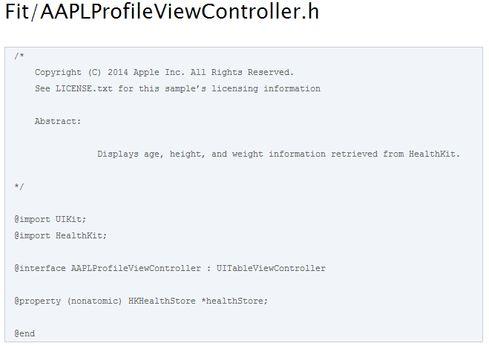Apple Partners With Epic, Mayo Clinic For HealthKitApple Partners With Epic, Mayo Clinic For HealthKit
Apple affirms its commitment to mobile health by partnering with market-leading hospital software firm and renowned healthcare provider.

given Epic's famously prickly reputation as a firm that doesn't form partnerships easily and that likes to do things its own way.
"I'm delighted that Epic actually decided to cooperate with [Apple], and I'm surprised they managed to get Epic to say yes," Forrester's Snow said. On the other hand, he added, "Epic is always accused of not being a very consumer-oriented company." A relationship with Apple should help Epic reach beyond the walls of the hospital and engage with patients. Meanwhile, Apple's association with Epic helps its technology gain credibility as an enterprise healthcare tool.
"If you had to choose the best EMR to win, this is the very best one," Snow said. "It will also make GE and Cerners and the other big guys want to join the ecosystem."
Hospitals are also likely to have more confidence in a mobile health system that has Epic's blessing, said Scott Sheaf, a senior engineer in the medical device development group at Battelle. "People listen to Epic -- they're in with a lot of hospitals," he pointed out.
Apple's HealthKit announcement has some similarities to Samsung's announcement last week of the Samsung Architecture for Multimodal Interactions (SAMI), a cloud-based open software platform capable of bringing together diverse data from a variety of sources for analysis. "Obviously, there is the Android-versus-iOS divide, but otherwise, what Apple and Samsung are doing is very similar," Sheaf noted.
Samsung also showed a modular wearable device (albeit a "reference architecture" rather than a shipping product) that's capable of accepting plug-in sensors from third-party hardware developers. This suggests that Samsung's announcement -- although widely seen as an attempt to steal Apple's thunder over the anticipated Health app launch -- is probably just a first step toward a product still to come.
Apple's move with HealthKit is also probably not the last word, according to Snow. "I think there is going to be physical hardware before they're done," he predicted. He would like to see Apple set the standard for secure low-power communications between monitoring devices and smart phones since health devices that need to have long battery lives tend to use proprietary protocols rather than power-hungry standards like Bluetooth.
Sheaf, who also studies these issues, disagreed, pointing out that there is already a low-power version of Bluetooth suitable for use with medical device, and that Apple would be smarter to remain "hardware-agnostic" on that issue. The most promising space for Apple and other systems software vendors to innovate, Sheaf said, is in the analytics for data gathered from mobile gadgets. "That's where the innovation is going to be in the next 10 years."
Has meeting regulatory requirements gone from high priority to the only priority for healthcare IT? Read Health IT Priorities: No Breathing Room, an information Healthcare digital issue.
About the Author
You May Also Like






